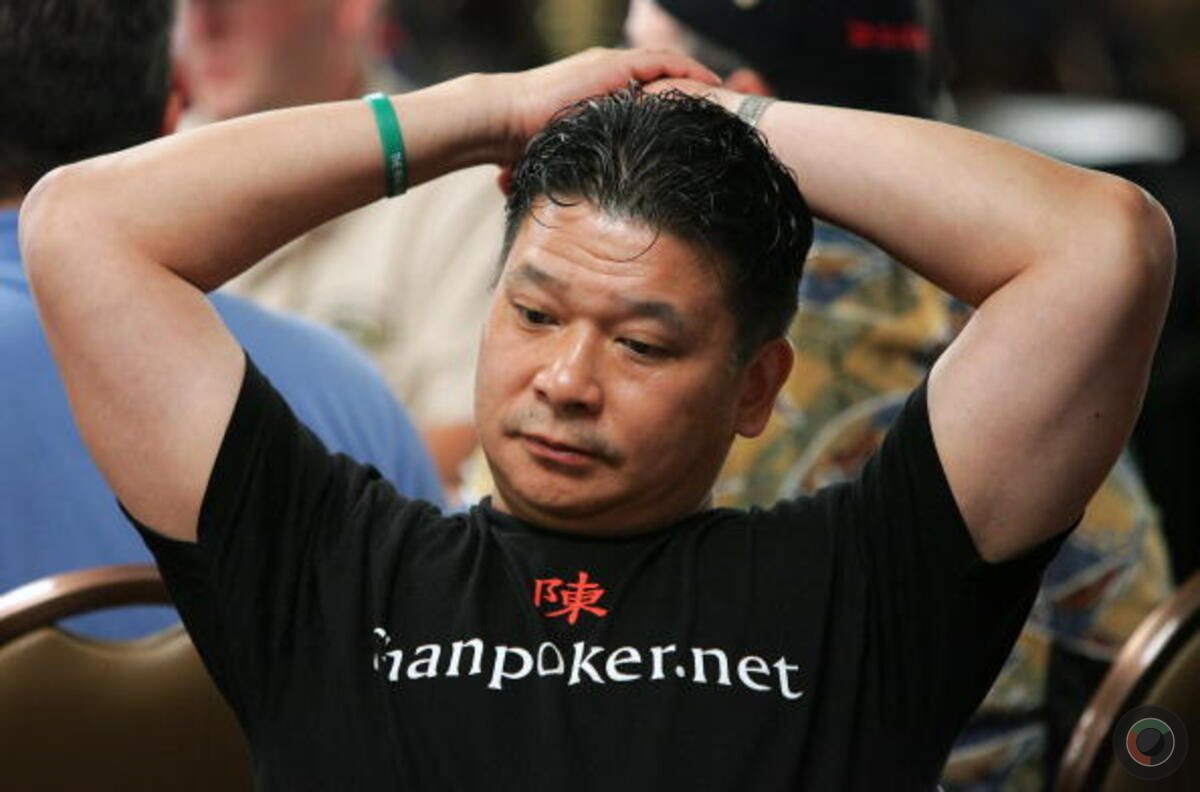Lost 40000 Gambling
Well, I started playing a bit - won around $5,000 worth of Bitcoins, and then lost about $20,000 worth. I was so ashamed of my loss that I dug into my home mortgage fund and gambled $40,000 away. Within 1 week it was all gone. My wife does not know at this point. She will probably find out when the letters from the bank start coming.
- THE NATIONAL COUNCIL ON PROBLEM GAMBLING: 1800-6668-668. Near-misses on the machine also egged her on, and she lost about $40,000 over three to four years.
- Albert Belle, the slugger whose career has been tainted by temper outbursts, suspensions and fines, has admitted under oath that he recently lost as much as $40,000 betting on sports. Belle, who left the Cleveland Indians and became baseball's highes t-paid player by signing a $55 million, five-year contract with the Chicago White Sox in.
- The rest was reversed and lost (probably £40,000+ of winnings reversed and lost). Even the money that did reach my bank was always put back in. Regardless of that, I have easily lost in excess of £50,000 outright of my own money to gambling.
Gambling income, unsurprisingly, is subject to income tax. This post is an overview of federal and Michigan treatment of gambling income and losses.
FEDERAL TAX TREATMENT OF GAMBLING INCOME & LOSSES
On your federal income tax return, you can take an itemized deduction for gambling losses, but only to the extent of gambling income (in other words you can’t claim an overall loss on gambling activity).
Example: John likes to play blackjack and had winnings of $40,000 in 2009. He also lost $90,000 in the same year. John has to report his $40,000 winnings as income, but he can only deduct $40,000 of his gambling losses because gambling losses are limited to gambling winnings. Excess gambling losses cannot be carried forward.
It should be noted that taxpayers must itemize to claim gambling losses.
Example: Joan won $4,000 in the lotto in 2009. She also lost $5,500 in other gambling activity during the year. If she does not itemize, she has to claim the $4,000 in income and cannot deduct the $5,500 in gambling losses—not a good result.
Even though the itemized deduction for gambling losses can offset gambling income, it is a below-the-line deduction (i.e., it is taken after computing AGI). AGI is used to calculate various phaseouts for credits and deductions. Therefore, gambling income may affect your phaseouts even though they are offset by gambling losses.
MICHIGAN TAX TREATMENT OF GAMBLING INCOME & LOSSES
In Michigan, gambling income is based on the amount of gambling winnings included in federal AGI (the bottom line of the first page of your Form 1040) without taking into account the itemized deduction for gambling losses. So, in the above examples, John has $40,000 in gambling income on his MI-1040 and pays $1,700 in tax and Joan has $4,000 in gambling income on her MI-1040 and pays $170 in tax even though both John and Joan had overall gambling losses.

To get around this unlucky result, the strategy is to use gambling losses to directly offset gambling income, rather than take gambling losses as an itemized deduction. There are two ways to do this:
* Special Rule for Slots and other Casual Gambling
* Becoming a professional gambler (harder than you think and will not be discussed here)
SPECIAL RULE FOR SLOTS AND OTHER CASUAL GAMBLING
Generally, gambling winnings and losses have to be determined on a wager-by-wager basis. For causal gambling (slots, poker, blackjack, horse racing, etc.) you can determine gambling winnings and losses on a net daily basis. By figuring gambling income on a daily basis (rather than wager-by-wager) gambling winnings are directly offset by gambling losses (and thus become excludable from Michigan income tax).
Example (wager-by-wager basis): Jimmy goes to the casino on Friday and buys $1,000 in tokens to play slots. He has $9,000 in winning spins and $6,000 in losing spins. He cashes out on Friday with $3,000. Jimmy wants to continue his winning streak on Saturday. He buys $4,000 in tokens. This time Jimmy has $1,000 in winning spins and $5,000 in losing spins. He leaves the casino with nothing.
On a wager-by-wager basis, Jimmy has $10,000 in winning spins over the two days and reports this amount as income. Jimmy has $11,000 in losing spins over the two days and deducts his losses as an itemized deduction (limited to the $10,000 in gambling winning). However, on Jimmy’s Michigan tax return, he must report the $10,000 as income, but cannot take a deduction for gambling losses.
Same Example (daily basis): Jimmy’s daily gambling winnings and losses are netted. Jimmy has overall income of $2,000 on Friday (Cash Out: $3,000 & Cash In: $1,000) and an overall loss of $4,000 on Saturday (Cash Out: $0 & Cash In: $4,000). On a daily basis, Jimmy had $2,000 of gambling winnings on Friday and $4,000 of gambling losses on Saturday. On his federal return, he must report $2,000 of gambling winnings and gambling losses of $2,000 (again, the itemized deduction for gambling losses is limited to gambling winnings). On his Michigan return, he only reports the Friday daily winnings of $2,000.
It is CRITICAL that gambling winnings and losses be properly documented. The following information should be maintained in a log:
1. the date and type of specific wager or wagering activity
2. the name and address of the gambling establishment
3. the names of other persons present with the taxpayer at the gambling establishment
4. the amount won or lost
If you need help with small business taxes,

sign up for a FREE tax analysis.
Buzzkill Disclaimer: This post contains general tax information that may or may not apply in your specific tax situation. Please consult a tax professional before relying on any information contained in this post.
Mike Lee signed a voluntary exclusion order three years ago but continued to frequent some B.C. casinos run by the BCLC.
BCLC's self-exclusion program
What is the Voluntary Self-Exclusion Program?
When you decide to take control of your gambling behaviour, the Voluntary Self-Exclusion program is one tool that can help you. The VSE program enables you to voluntarily exclude yourself from all facilities with slot machines, commercial bingo halls, or PlayNow.com for a pre-determined amount of time.
What happens if I enter a casino and gamble while in the VSE program?
If you enter a casino while self-excluded and are identified, security will be alerted and you will be asked to leave. In accordance with the Gaming Control Act (BC), you may also be fined up to $5,000.
What happens if I win a jackpot while in the VSE program?
Lost 40000 Gambling No Deposit
You are not eligible to win while in the voluntary self-exclusion program, in accordance with the rules and regulations.
Lost 40000 Gambling Losses
(Source: BCLC)
Lee's lawyer, Joshua Weiszner, told CBC News his client won several smaller jackpots over the years and was always paid, but he was never barred from the casino.
'He provided his ID, he was paid, and he was never asked to leave — and a fundamental term of the agreement that he signed is that if he is identified, he will be asked to leave,' Weiszner said.

Under the terms of the self-exclusion program, security staff at casinos are supposed to stop those in the program from gambling.
'To my client, that was a representation that it was permitted for him to play,' Weiszner said. 'Basically, they were turning a blind eye to it,'
However, when Lee won a $40,000 jackpot on a slot machine at a Cowichan casino in January, the lottery corporation refused to pay out the winnings.
'They let him play, they let him win in small amounts,' Weiszner said. 'When he won the jackpot — that's when they decided to rely on, not the agreement, but a rule they made, subsequent to the agreement.
'[Lee] feels that if he was allowed to play and lose, then he should be allowed to keep the winnings.'
Weiszner said the BCLC now has a rule that self-excluders must forfeit their winnings, but that regulation was put in place after Lee signed his agreement.
Weiszner points out the BCLC is not offering to cover the losses Lee incurred during the exclusion order.
Colin Campbell, a criminologist at Douglas College who specializes in gambling research, is critical of the self-exclusion policy.
'You're asking casino staff and management to turn away what amounts to their best customers.'
He said those signing the agreements may think they're being watched more closely than they actually are.
'These people that sign up for self-exclusion are obviously at some risk and are struggling to control their gambling appetites,' Campbell said.
'In short, they're vulnerable people, and I'm not persuaded that's it entirely clear to the people who sign the agreement that they're not going to be monitored.'
The lottery corporation said it cannot comment on the case because it is before the courts.
Lost 40000 Gambling Money
Earlier this month, CBC News revealed a Delta woman was suing B.C. for the loss of several hundred thousand dollars because it failed to bar her from casinos after she signed up for the voluntary self-exclusion program.